
Pão de Ló
The soft cake of Portuguese celebrations
In every Portuguese family, there’s a cake that comes out of the oven like a little sun: the pão de ló. Golden, airy, soft, it always announces something joyful. It’s the cake of dressed-up Sundays, overfilled tables, and aunts who hug you too tightly while saying how much you’ve grown.
The ingredients of happiness (and celebration)
- 6 eggs (real ones, not those with a hint of fridge taste)
- 200 g of sugar
- 150 g of flour
- A pinch of salt
- A little lemon zest (optional, but it brings back memories)
Preparation of sweetness (and a bit of patience)
- We start by whisking joy: break the eggs and beat them with the sugar until the mixture becomes pale, light, frothy, alive.
- Add the flour gently, as if you were rocking childhood. Fold it in little by little, without breaking the foam. The secret of softness lies there: in the tenderness of the gesture.
- A bit of lemon zest, a pinch of salt, and you’re already transported to a kitchen that smells like celebration and freshly ironed tablecloths.
- Pour the batter into a tin lined with baking paper, raised well up the sides, that’s what gives the cake its lovely brown skirt as it bakes.
- Bake at 180°C for 25 to 30 minutes. The outside should be golden, almost dry, and the heart still trembling, a bit like the emotions we hide under the smiles of big family gatherings.
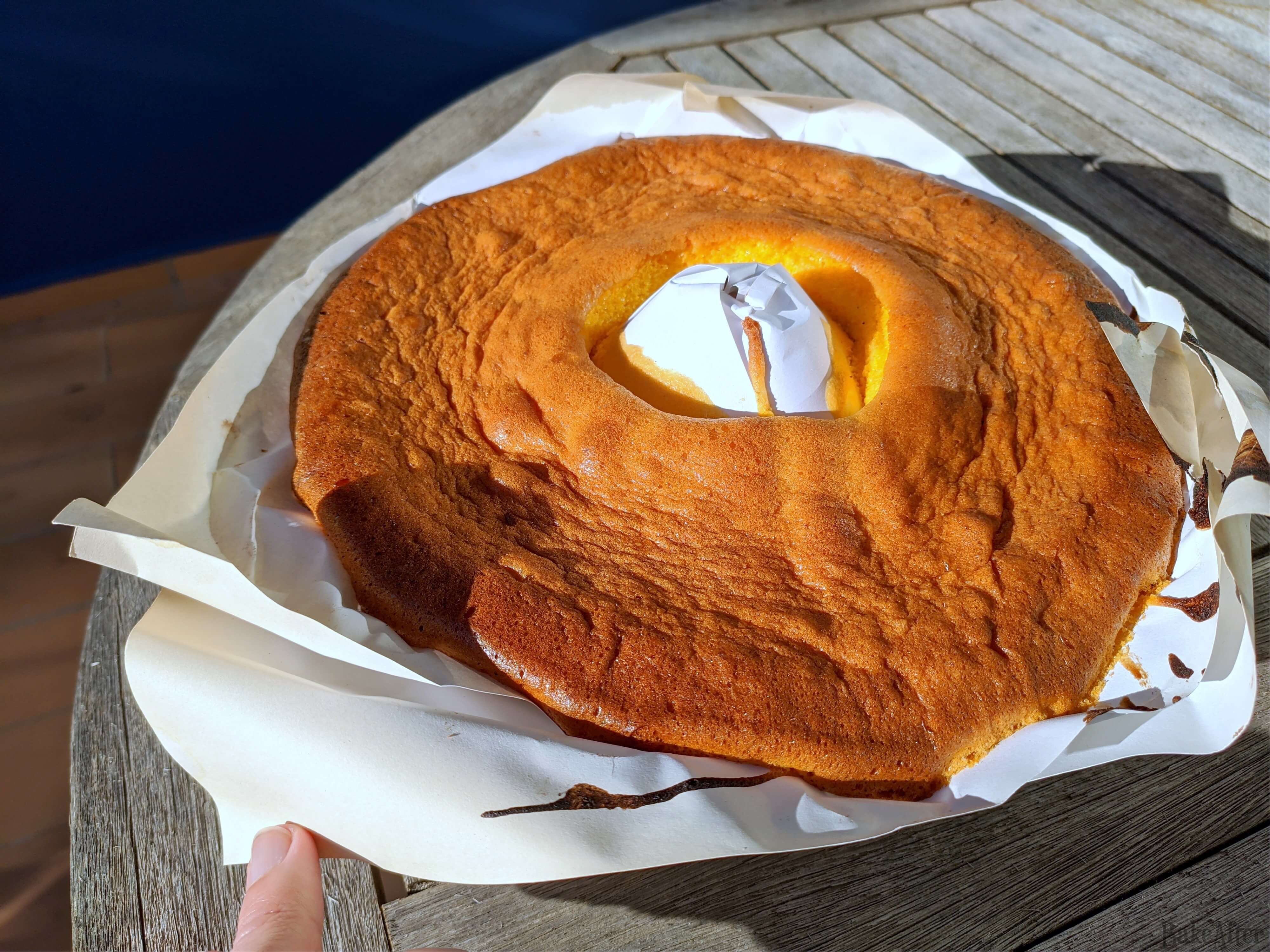
The memory that lingers on the palate
At my home, pão de ló is the scent of Easter Sunday. The clinking of plates, the sun hitting the curtains, and my grandmother watching the oven as if it held a state secret.
When she took it out, she always said:
“You have to let it breathe, just like the people you love.”
To be served with a strong coffee, a chat about the rain and the neighbours, and that little Portuguese pride that says: “No one beats our cakes, not even the French.”
Cooking is… golden, light and a little sentimental.
L.R.
Share this article
Suggested articles
.jpg&w=3840&q=75)
Pastéis de Bacalhau
There are dishes that smell like holidays and grandma’s kitchen. Pastéis de bacalhau are exactly that. These little golden cod croquettes, crispy on the outside and soft on the inside, are at once an appetiser, a madeleine of Proust, and proof that Portugal has completely mastered the art of frying.
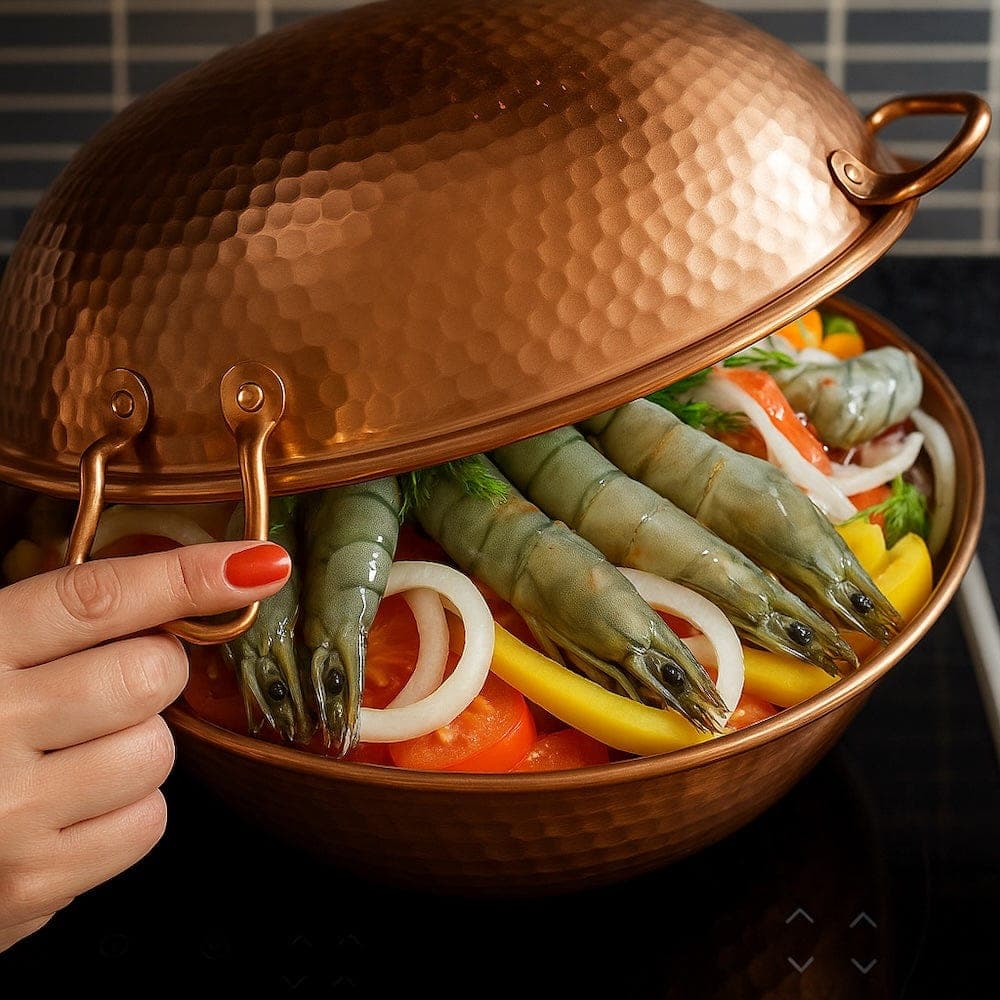
How to make a fish cataplana at home ?
I don’t know about you, but for me, just hearing the word cataplana already brings to mind the sound of the lid lifting, the steam escaping, and that blend of garlic, white wine and sea air filling the kitchen. A Portuguese dish full of sunshine, humour and conviviality, but also (let’s admit it) a little technical challenge when you want to reproduce it at home ! (unless, of course, you’ve had a bit of practice !)

The secret of arroz de pato (duck rice)
Ah, arroz de pato… Just thinking about it makes me hungry ! This dish is the very definition of Portuguese comfort food, the kind that fills the house with rich aromas, warms the heart, and makes you forget bad weather (and sometimes even family arguments, yes really !).
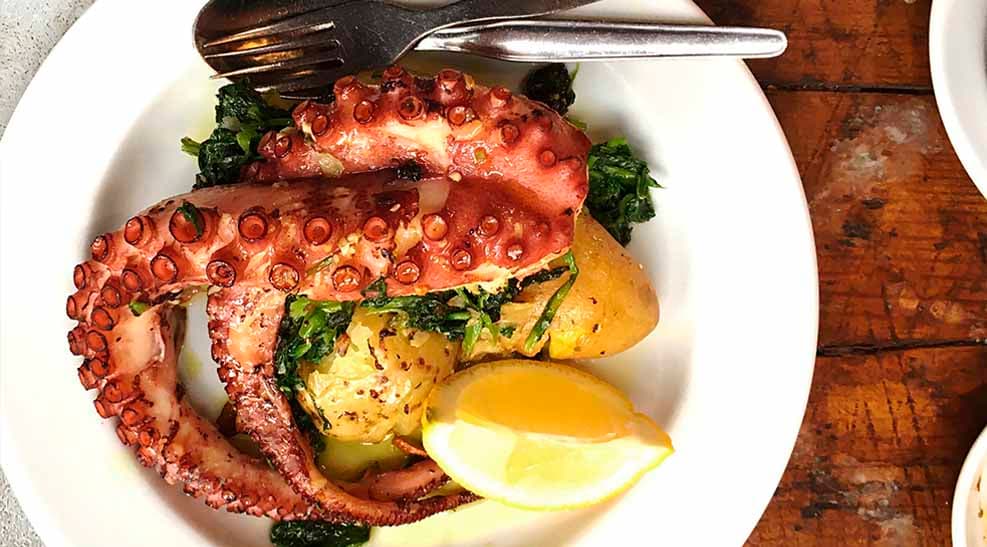
Polvo à Lagareiro : the roasted octopus in olive oil that melts Portugal (and you too)
If there’s one dish that perfectly sums up the generosity and simplicity of Portuguese cuisine, it’s Polvo à Lagareiro ! This roasted octopus drenched in olive oil, served with crispy potatoes and perfumed with garlic, is like a bit of Portuguese sunshine on a plate. It’s that dish everyone loves : the one you order “just to taste”… and then refuse to share.
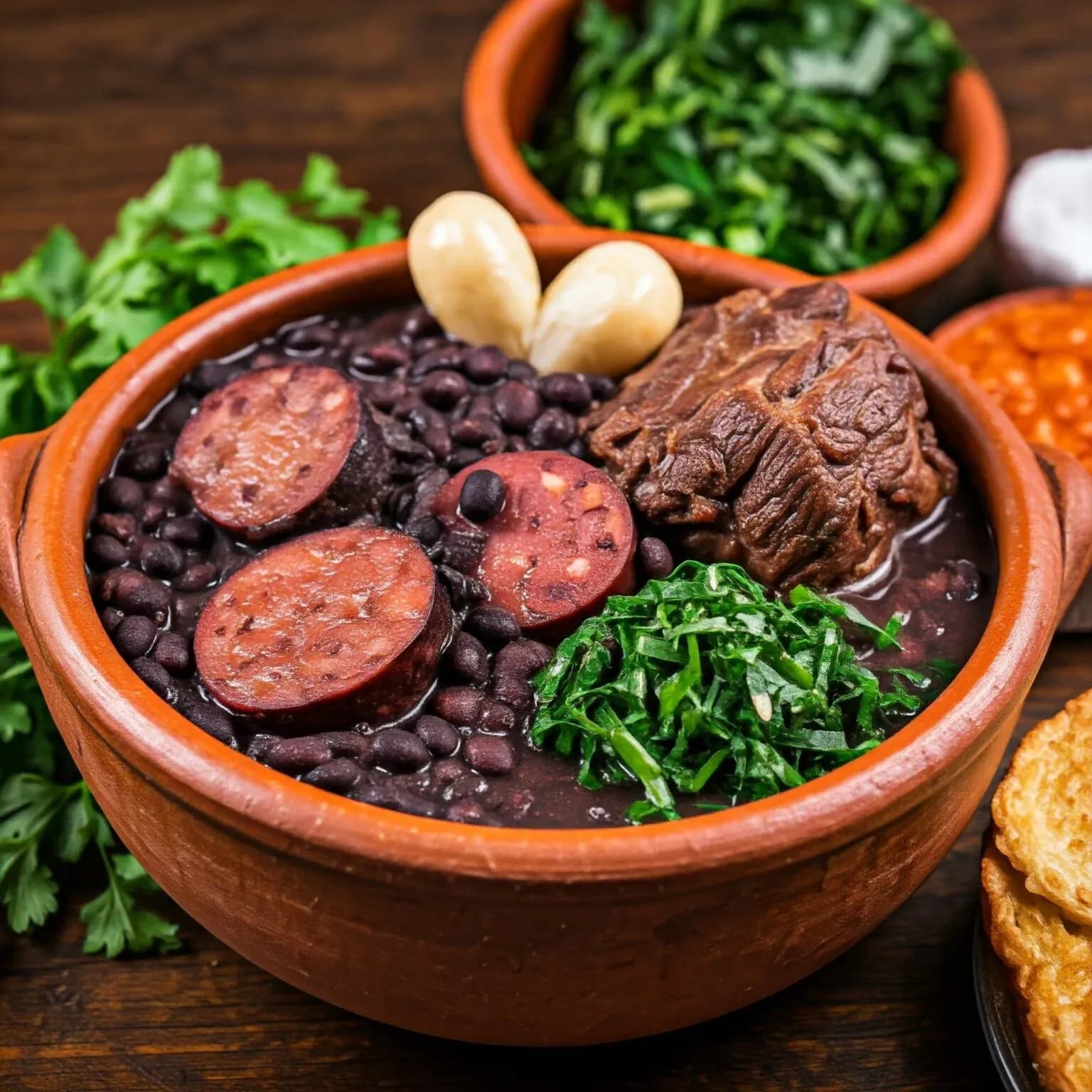
Feijoada à Portuguesa : THE ultimate Sunday family dish
If you’re looking for a meal that brings everyone together from the kids dragging their feet to the table to the grandparents checking their watches, look no further : Feijoada à Portuguesa is the secret weapon ! This hearty stew of beans cooked with a mix of meats, smoked sausages, and a touch of greens is the very definition of generous Portuguese cooking, “put everything on the table and help yourself.”
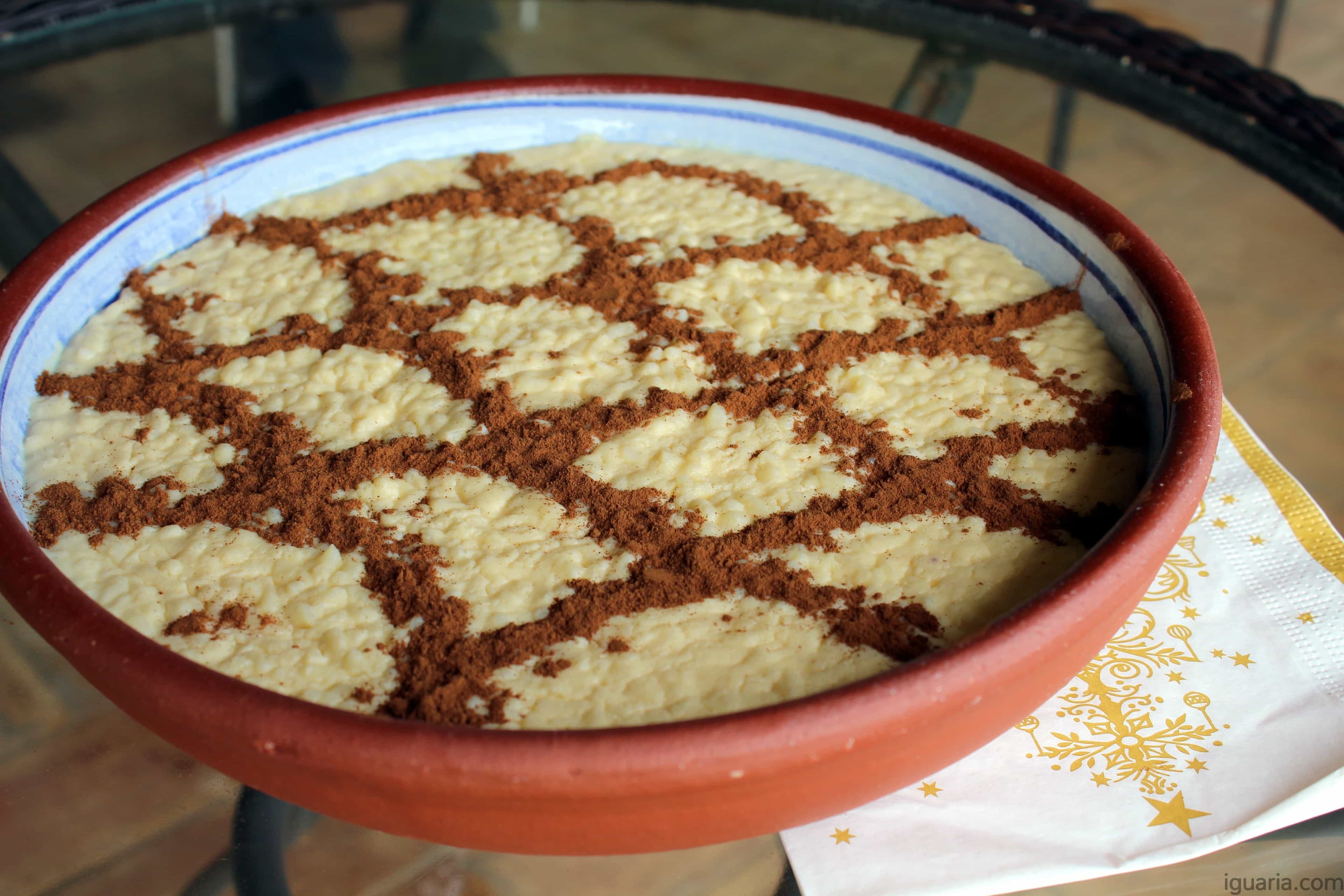
Arroz Doce : the cinnamon-kissed rice pudding that warms Portugal
This dessert may look simple and it is… but it’s exactly that simplicity that makes it so special. Arroz Doce, literally “sweet rice,” is a true institution of Portuguese cuisine : rice gently cooked in milk, infused with lemon zest and cinnamon, served during big celebrations or on a quiet winter Sunday when you just need a bit of comfort.


